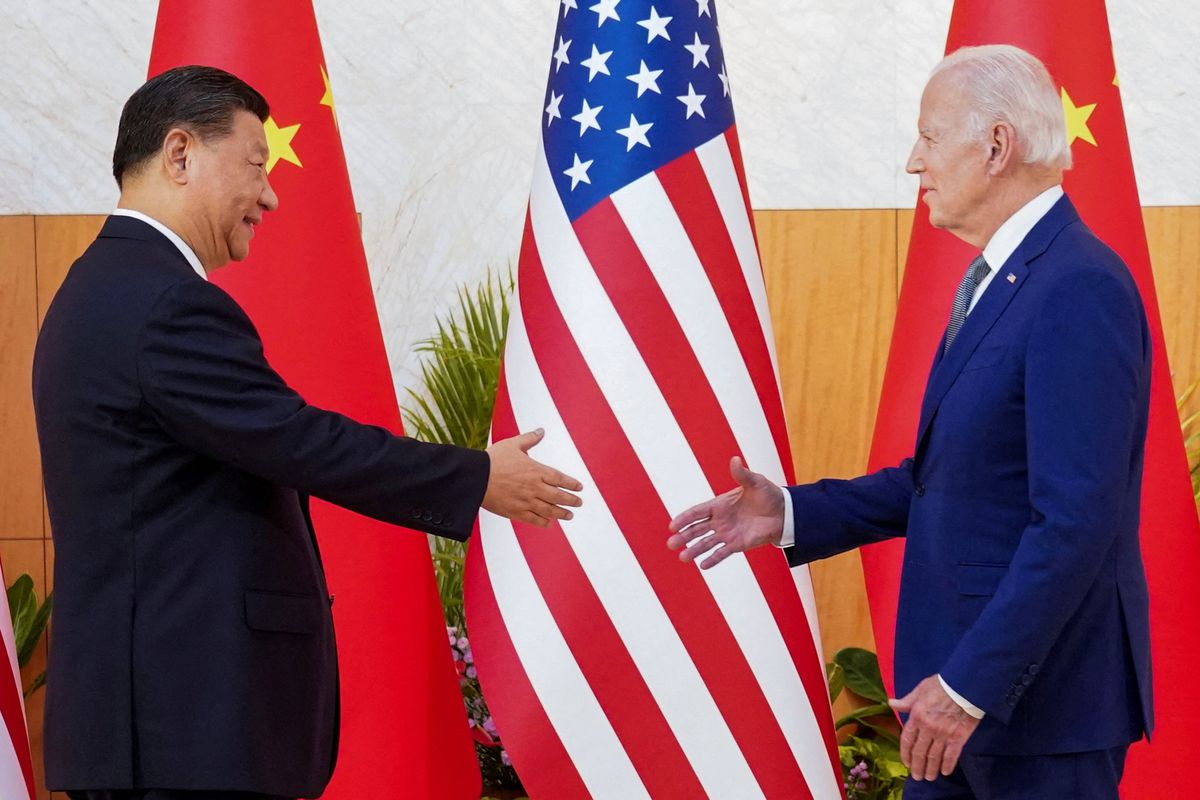Fresh out of Barnard College with a degree in political science, Riley is a writer and reporter for GZERO. When she isn’t writing about global politics, you can find her making GZERO’s crossword puzzles, conducting research on American politics, or persisting in her lifelong quest to learn French. Riley spends her time outside of work grilling, dancing, and wearing many hats (both literally and figuratively).
Chinese President Xi Jinping and US President Joe Biden will meet face to face tomorrow in San Francisco in the hopes of salvaging their countries’ crumbling relationship.
The two had the same goal when they met on the sidelines of the G20 last November. But after China floated a spy balloon into US airspace, the rest of the year consisted of retaliatory trade restrictions on technology and critical minerals, Chinese raids on US companies, and increasingly frequent “risky intercepts” between military forces.
In short, we did not see a U-turn in tensions after last year’s meeting. So, will this year be any different? Rick Waters, managing director of Eurasia Group’s China practice, says that “Biden and Xi both seek to stabilize the relationship for their own reasons.”
Biden — who is already managing two conflicts and can’t risk another — hopes to restore high-level military and political communications. Meanwhile, China’s main concern is its economic slowdown and stopping the mass exodus of US companies since its raids earlier this year.
Waters expects progress on a fentanyl deal that would be key for Biden’s reelection campaign. The deal is still being finalized but likely entails Beijing cracking down on companies sending fentanyl’s precursor chemicals to Mexican cartels in exchange for the US lifting restrictions on China’s forensic police, which it has accused of human rights violations. The two are also expected to agree to see eye to eye on limiting AI in certain military contexts.
Taiwan could be next year's “spy balloon.” Both players maintain their contrasting positions on Taiwanese independence, so any progress in the decaying US-China relationship will be put to the test when Taiwan holds an election in January of 2024.





